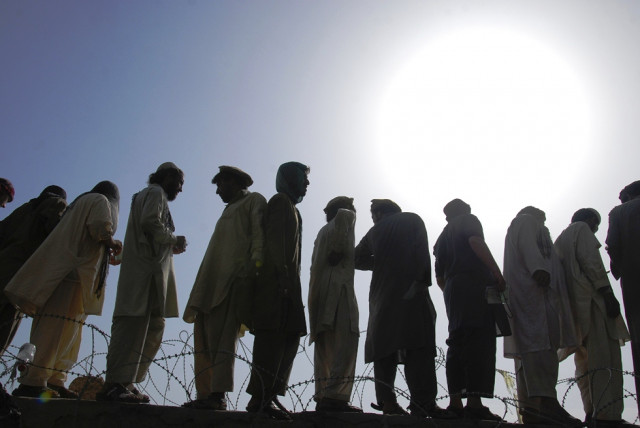An uncertain future for IDPs
Winter is now upon us, the hope that IDPs would soon be repatriated has been dashed by appalling events of December 16

An uncertain future for IDPs

They were forced from their homes in advance of military action in order to minimise civilian casualties. They were directed to areas around Peshawar to camps that they found inadequate — and culturally insensitive given the prevailing culture of purdah — and they spontaneously occupied schools and other government buildings to set up makeshift camps. They became beggars almost overnight, completely reliant on handouts for the basic necessities of life. Their livestock was lost to them, there were no fields to till and above all, and most keenly felt, they lost their dignity and independence.
Winter is now upon us, and the hope that the IDPs would soon be returning to their homes — those who are left standing, there is reportedly considerable damage to inhabited areas and town centres — has been dashed by the appalling incident of December 16 — the attack on the Army Public School in Peshawar. Since that date, the army and the air force have increased their activities in North Waziristan and the prospect of an early return for the IDPs has slipped away.
The 20-point National Action Plan (NAP) formulated in the days after the Peshawar attack makes specific reference to the IDPs and the need to repatriate them at the earliest possible date. This is going to be neither cheap nor easy, and in terms of the prospect of the government repatriating to their homes a population that may contain individuals who have been radicalised by the actions of the government; a self-defeating exercise. The IDPs of North Waziristan are understandably angry. In many cases, they have literally lost everything beyond what they could carry with them when they left their homes. Such education as their children were receiving has been halted almost mid-lesson, and the provision of schooling and healthcare for the IDPs has fallen far short of their real needs.
Initially, the government was reluctant to accept external aid for the IDPs, but today organisations like Save the Children are partnering with the authorities and UN agencies to provide healthcare, shelter and food. Men and women have to learn new skills if they are to earn a living, and vocational training is a priority. Hygiene awareness teams are working to combat outbreaks of disease — many families are living in unhygienic conditions — and many children are suffering from malnutrition. While the efforts of government and non-governmental organisations and entities are laudable, they are never going to be enough to restore the confidence, dignity and cohesion of almost a million people who now find themselves displaced.
There had been a very limited return prior to the Peshawar attack by some IDPs, but whether more can now trickle back is an open question. This is a complex humanitarian and logistical exercise that will cost perhaps, billions of rupees in the long term. Handled well, a community can be repatriated and repaired, handled badly, it will catalyse future troubles.
Published in The Express Tribune, December 29th, 2014.
Like Opinion & Editorial on Facebook, follow @ETOpEd on Twitter to receive all updates on all our daily pieces.













COMMENTS
Comments are moderated and generally will be posted if they are on-topic and not abusive.
For more information, please see our Comments FAQ